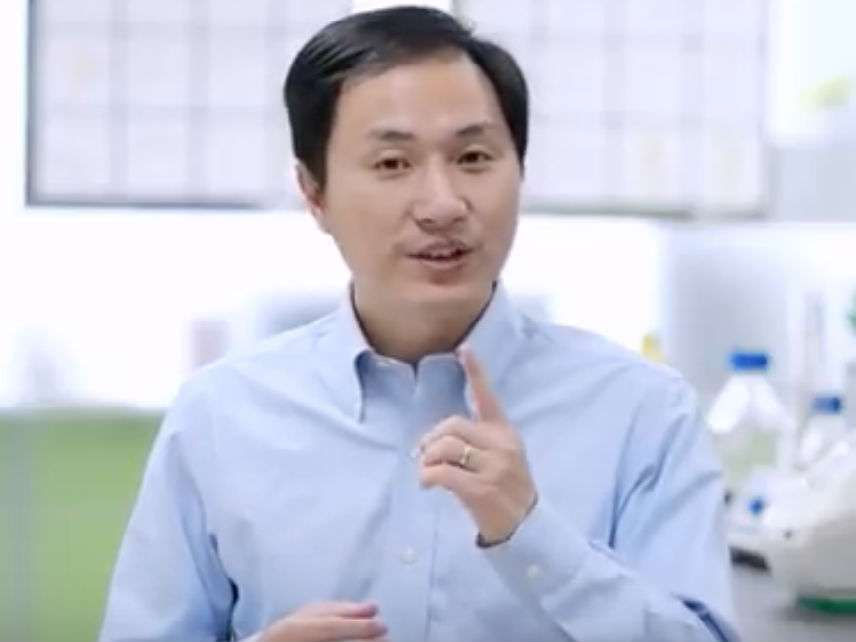First Genome-Edited Babies?
- OurStudio

- Nov 26, 2018
- 2 min read

He Jiankui
Chinese researcher He Jiankui announced on November 26 that he had used CRISPR technology to edit the genomes of embryos who have now been born as twin baby girls.
Keep in mind that He's research has not been published or otherwise independently verified. Even publication is no guarantee of truth, as the 2006 South Korean human cloning fakery should remind us.
That said, He claims to have edited embryos' genomes for seven couples during fertility treatments, with one pregnancy resulting thus far. He says his goal was not to cure or prevent an inherited disease but to disable a gene, called CCR5, that forms a protein doorway that allows HIV to infect a cell. People who inherit this trait naturally resist HIV infection.
He says that he practiced CRISPR editing on mice, monkey, and human embryos for several years before applying his techniques to human embryos. In these cases, the male parents were all infected with HIV and were seeking to make sure that their offspring would be immune to becoming infected with this virus. In one twin, all of her cells were edited so as to knock out the CCR5 gene; in the other, only some cells were. This means that the second twin could still become infected with HIV.
To edit the embryos, He says, his team injected a single sperm into each egg to create an embryo and then added the CRISPR construct to some with the instructions for precisely editing the CCR5 gene. After the embryos had grown for three to five days, He took cells from each embryos to check to see if the editing had worked. The couples involved could choose to try implanting either edited or unedited embryos.
This effort has been widely denounced as unethical experimentation on human beings. Feng Zhang, one of the inventors of CRISPR editing, has called for a global moratorium on using the technology to create gene-edited babies. Some research suggests that while knocking out the CCR5 would help the twins resist HIV infection, they might become more susceptible to infection by West Nile virus.
But not all researchers joined wholeheartedly in condemning the use of CRISPR editing on human embryos. The Harvard geneticist George Church has said that he thinks that the research is "justifiable."
One problem with CRISPR editing is that it sometimes introduces mutations far from the gene at which it is aimed at correcting. Such off-target mutations could obviously cause other problems. Researchers are working hard to make CRISPR editing ever more precise.
If parents were given the choice of implanting either edited or unedited embryos, and if they were adequately informed about the risks of using CRISPR technology, then that is where decisions about the ethics of using this technology should properly rest. There is no need for global moratorium.




Comments